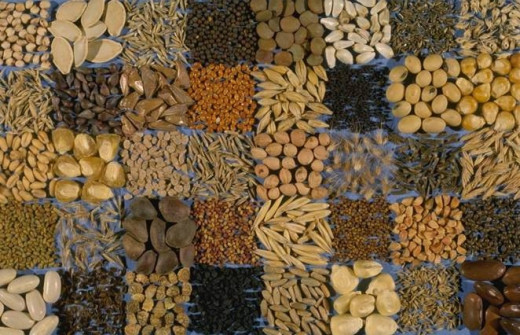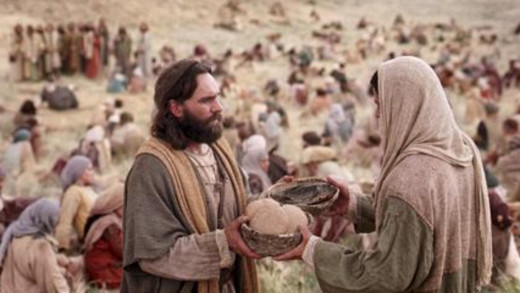Prayers: Seeds Differ, Harvest Differs
Introduction
Online Wikipedia says, Prayer is an entreaty or act that seeks to activate a bond with an object of worship through deliberate communication with the object. It refers to an act of supplication, intercession, worship directed towards a deity (a god), an ancestor or a higher authority. In comparative religion it also involves charms or spells an example of which King Balak called prophet Balaam to invoke on the Israelis when they wanted to pass through his land (Num 22-24)
“And Balak said unto Balaam, what hast thou done unto me? I took thee to curse mine enemies, and, behold, thou hast blessed them altogether.” (Num 23:11)
It would interest you to know that prayer can take different procedures it could be a set of liturgies, ritual, hymn, incantation, creedal statements (saying their beliefs) or spontaneous utterance in the praying person (like what happened when the disciples were filled with the Holy Ghost (Act 2:1-4)
“And they were all filled with the Holy Ghost, and began to speak with other tongues, as the Spirit gave them utterance.” (Act 2:4)
As early as 5,000 years ago, the act of prayer has been attested to. Major religions of the world one way or another pray with some ritualizing the act, restricting the person who can pray, give prayer sequence, while some opined that anyone can pray, and it could be done anytime.
Scientifically speaking, scientists have focused on the effects of prayers to heal the sick, injured people. Although there are yet contradictory documentations to this.
Agriculture is the science and art of cultivating plants and livestock. It is agriculture that enhances human civilization for it allows for humans to live in the cities. History of agriculture began thousands of years ago. About 105,000 years back, the people began to harvest wild grains and the plantation of those wild grains harvested began around 11,500 years ago. While pigs and sheep and cattle the earliest domesticated animals started around 10,000 years ago. Plants were independently cultivated in different regions of the world.
There are eight founder crops among which are emmer and einkorn wheat. Rice was cultivated in china around 5700 BC followed by azuki beans and others.
Planting of seeds could be monoculture or polyculture.
Monoculture is the practice of producing or growing a single crop, plant or livestock species or breed in a field or farming system. However, its continual practice could lead to increase risk of diseases or pests and environmental problems (in case of African palm oil, sugar cane).
Polyculture is another type of farming inn which more that one species is grown at the same time and place. It is the opposite of monoculture. It is the most prevalent form of agriculture in most part of the world among the farmers. This practice is on the increase because of its advantages; environmental and health. Types include intercropping, cover cropping, permaculture etc.

"Because we are in a competitive world, some farmers have stayed with mono-cropping because of crop yield to be able to meet with the demands of some industrial food producers."
Crop Types
Types of crops include cash (profit) crop, perennial crops (don’t need to be replanted each year), annual crops (complete their lifecycle in a year examples are nurse crops, rabi crops, row crops)
The planted seeds could be monocotyledon or dicotyledon seeds. The days of germination of these types of seeds differ as well as their times of harvest.
It is with respect to this agricultural insight that I want us to see prayer.
Annual Plants

1. Time of Sowing Differs:
Different seeds have different time of sowing them, the seeds are not sow at the same time, there are some that would be sown immediately the rain starts falling, while there are some that would be sown some days prior raining season. If naïve farmer tries to do otherwise or says he wants to do some experimentation and has no other farmland to serve as shock absorber for the experimentation, such farmer would suffer the following year (or some months after) because he may not harvest anything from the farm because he misses the plantation season.
Perennial Plant

2. Farmers Duties:
2. Famers Duties: Some of the responsibilities of a farmer are as follow:
(a) It is farmer’s duty to ensure that he knows the correct planting season, the right time to plant the seeds he wants to sow. This is because there are some seeds that should not be planted during harmattan or summer season, doing that would make the farmer run at a loss, even if the seeds (suckers) germinated it wouldn’t yield its maximum and no one wishes that the seeds he sows not to yield her maximum.
A person who wishes to be a farmer would have to make inquiries into different times and seasons of year appropriate and applicable for planting different seeds.
Someone who is a farmer would not say because he is anxious, neither because the loans he applied for has just been granted and by that go to the farm to plant when the seeds would die and rotten in the soil, he has to search out the time, ask from those who know about it, the experts in the field, either local expert or the educated experts in the field.
“And I gave my heart to seek and search out by wisdom concerning all things that are done under heaven: this sore travail hath God given to the sons of man to be exercised therewith.
“I applied mine heart to know, and to search, and to seek out wisdom, and the reason of things, and to know the wickedness of folly, even of foolishness and madness:” (Ecc 1:13 & 7:25)
(b) Another duty of a sower is knowing the correct land on which to plant the seeds on. Some seeds when they are planted by the river bank they would be destroyed there because they do not need much water for their growth. But if such a farmer now says my seeds shall be like a tree planted by the river side because the bible says, “… a tree planted by the rivers of water, … bringeth forth his fruit in his season; (its) leaf also shall not wither….” (Psa 1:3) he would discover that he has made a fool of himself, because the seeds would rot and be destroyed where it has been planted on. A farmer also needs to avoid assumption on this and ensure that he sows his seed on the right soil type.
If we can bring back to our minds the first story in the book of Matthew 13 which is called the parable of the sowers we shall discover that some of the seeds the farmer in the parable sowed do not produce any fruit. Why? It was because they were not sown on the right soil. (Mat 13:3-8)
(c) The sower must avoid negligence: what I mean by this is that the famer has to observe clearly those seeds and separate those that are bad, those without lives from those that have lives. He needs to do this because failure to do that he would no sooner than expected discover that those seeds which he thought have lives in them would have been corrupted with the micro and macro organisms eating those seeds and they would not be “viable” again.
If such happens it would mean a total loss for the farmer as he may not be able to cover the number of hectares which he thought he would plant on that year and in case he has given laborers to clear the land and make ridges for him as the local people use to do or do it himself or employ the services of tractors in case of mechanized farming, he would discover that he has begun to run at a loss for the inability to plant on all the ridges made.
This farmer would have no one to blame, he would essentially blame himself for his negligence, inability to do what he ought to do at the right time, resting when he ought not to be resting.
Jesus expressly talks about this “viability” while talking about himself, his death in the gospel according to saint John chapter 12 as he refers to a farmer who has done his homework, a farmer who has been up and doing the farmer who has taken its time to separate a seed with no life from those that have lives in them.
“Verily, verily, I say unto you, except a corn of wheat fall into the ground and die, it abideth alone: but if it die, it bringeth forth much fruit.” (Joh 12:24)
(d) Monitoring the progress of the germinated plants: after seeds sown have germinated, the farmer would not go and sleep, but he would start monitoring the progress of the planted seedlings, how they are faring, their growth.
In monitoring their growths, he would have to remove weeds that would inhibit the progress of the growth of the plants.
As this topic is being related to prayers, everyone who would be praying to God must ensure that he or she removes weeds out of his or her lives, the weeds that would inhibit God from answering him as at when due, the weeds that would serve as obstacles to God answering his prayers as and when due.
Some of those weeds that anyone who will be praying needs to conscientiously remove out of his or her life include the followings:

(i) Iniquity: The bible says, “if I regard iniquity in my heart, the Lord will not hear me:” (Psa 66:18). The word iniquity in Hebrew here is “און”, the Romanized form is 'âven (pronounced as aw'-ven) which means wickedness, unjust, unrighteousness.
God wants us to remove all forms of unrighteousness from our ways if indeed we want our prayers to be answered. He requires of us to be just in all our dealings with others in the world so that he will equally deal justly with us.
“The LORD is far from the wicked: but he heareth the prayer of the righteous.” (Pro 15:29)
Some people consider this iniquity to mean sin too and some believers believe sin is failure to accept Jesus Christ as your savior and Lord. Those who believe sin is failure to accept Jesus Christ as one’s Lord and savior buttress their points by saying that anyone who accepts Jesus Christ as his or her Lord and savior cannot commit sin because the seed of God is in him, sin would become dung unto him, sin and the appearances of sin would always irritate him or her.
“Whosoever is born of God doth not commit sin; for his seed remaineth in him: and he cannot sin, because he is born of God.” (1 Jo 3:9)
Close Ended Question 1: Salvation
Have you given your life to Jesus Christ?
Close Ended Question 2: Certainty
Are You Sure of Salvation?
Close Ended Question 3. Reasons
Why Are You Uncertain?
If you are yet to give your life to Jesus Christ you need to do so now, because tomorrow will be too late. In case you have backslided once, his arms are wide open to accept you back to himself.
“Return, ye backsliding children, and I will heal your backslidings. Behold, we come unto thee; for thou art the LORD our God.” (Jer 3:22)
“Come, and let us return unto the LORD: for he hath torn, and he will heal us; he hath smitten, and he will bind us up.” (Hos 6:1)
“O Israel, return unto the LORD thy God; for thou hast fallen by thine iniquity.” (Hos 14:1)
“I will heal their backsliding, I will love them freely: for mine anger is turned away from him.” (Hos 14:4)
The father of the second (prodigal) son who squandered his possessions accepted him when he returned to him (Luk 15: 12-32) God will equally accept you if you can come back to him, telling him how sorry you are for turning away from him. Think about this and take a step.
Iniquity is also referred to as sin. God abhors sins, and anyone who claims to be praying to him must flee sin for failure to do that would make God to close his ears to the person’s prayers, therefore anyone who prays needs to remove sin far from him or her.
“Now we know that God heareth not sinners: but if any man be a worshipper of God, and doeth his will, him he heareth.” (Joh 9:31)
The man born blind was the one who says this to the spiritual leaders of his day.


(ii) Doubt: another thing that should be removed by anyone who wants to pray to God is doubt. Doubt is defined as a feeling of uncertainty or lack of conviction. In the case of online Wikipedia, she defines doubt as the psychological state in which mind remains suspended between two or more contradictory suggestions, unable to assent to any of them.
Talking about doubt from the perspective of emotion it is indecision between belief and disbelief. This may involve hesitation, cynicism or lack of conviction on certain facts, actions, motives, or decisions. It can result in a person delaying or rejecting relevant action out of concern for mistakes or missed opportunities.
This was the position of the woman of Samaria who met Jesus at Jacob’s well, she was hesitant and expresses her cynicism when Jesus was talking with her at the well. (Joh 4)
“Then cometh he to a city of Samaria, which is called Sychar, near to the parcel of ground that Jacob gave to his son Joseph.
“Now Jacob's well was there. Jesus therefore, being wearied with his journey, sat thus on the well: and it was about the sixth hour.
“There cometh a woman of Samaria to draw water: Jesus saith unto her, Give me to drink.
“(For his disciples were gone away unto the city to buy meat.)
“Then saith the woman of Samaria unto him, How is it that thou, being a Jew, askest drink of me, which am a woman of Samaria? for the Jews have no dealings with the Samaritans.” (Joh 4: 5-9)
In Hebrew doubt is “תּלא”, Romanized form is tâlâ', (pronounced as taw-law') which means to suspend, being uncertain.
While in Greek the following words are associated with doubt and they are: “διστάζω”, with this Romanized form distazō (pronounced as dis-tad'-zo); “διακρίνω”, the Romanized form of which is diakrinō, and it can be phonetically spelt as dee-ak-ree'-no; “διαπορέω”, Romanized form is diaporeō (pronounced as dee-ap-or-eh'-o ) and “ἀπορέω”, Romanized form is aporeō (pronounced as ap-or-eh'-o) which means to waver (in opinion), oppose, stagger, perplexed.
This position of cynicism, hesitation and uncertainty about the ability of God to do something for his children when they asked of such from him should be removed from our hearts, because Apostle James says this of someone who staggers or wavers at God’s promises, someone who wavers while praying to God that such a one is like wave of the sea driven with wind tossed to and fro like a simple pendulum.
“But let him ask in faith, nothing wavering. For he that wavereth is like a wave of the sea driven with the wind and tossed.
“For let not that man think that he shall receive any thing of the Lord.
“A double minded man is unstable in all his ways.” (Jas 1:6-8)
Someone who is not stable in his ways cannot receive anything from the Lord, this is why it is imperative that anyone who wishes to commune with the Lord in prayer should remove far from him or her doubts.

(iii) Forgive Others: as long as we live in the world it is certain that we shall be grieving ourselves, we shall be stepping on each other’s toes. Anyone who does not want his toe to be stepped upon would leave for the wilderness and would make his dwelling place among the beasts of the field like King Nebuchadnezzar (Dan 4), but be it known unto anyone who wishes to do that, that even the ants and other animals of the field would also step on the person’s toes. And when they do, they would not say sorry to the person other than leaving injuries and pains on the person.
“And when ye stand praying, forgive, if ye have ought against any: that your Father also which is in heaven may forgive you your trespasses.
“But if ye do not forgive, neither will your Father which is in heaven forgive your trespasses.” (Mar 11:25-26)
Jesus when talking to his disciples, followers, students, told them the importance of forgiving others who have trespassed against them for their prayers to be heard and answered by God. Trespass in Greek word is “παράπτωμα” Romanized as paraptōma (phonetic spelling is par-ap'-to-mah) which means offence, sin, fault. In other words, Jesus was telling them that those who have wronged them they should forgive them.
Forgive in Greek word is “ἀφίημι”, the Romanized form is aphiēmi, (pronounced as af-ee'-ay-mee) which means forsake, lay aside, let go, put away, yield up.
Since we are not living alone in the world, this is important to our Christian journey as well as our prayer life.
Some cannot forgive their spouses and they would continue to live together for years, yet they will want their prayers to be answered, this is an error. Some have been wronged by their co-staff in the office and they find it hard to forgive them, yet they will be looking unto God in prayers.
Poll Question 4: Forgiving
Do you believe if you forgive others you will be forgiven by God?
Poll Question 5: Frequency
How often should one forgive?
Poll Question 6: Inhibition
Can unforgiving mind (heart) hinder one’s prayer?
God forgives us through Jesus Christ, and we should endeavor to do the same unto others around us and in our daily endeavors. We should always look at humans that they are fallible just as you are not perfect. If we could be seeing others as imperfect being as we are not perfect, we shall know that we shall always see faults in something that is not perfect. That is how humans are, faults are all over our lives and to grow beyond that we have to be forgiving one another, it is when we do this that we shall be able to make advancements, it is them that our prayers shall expressly get to God, because we shall have a pure heart and boldness to ascend to the throne of grace to ask of what we want from him.
(e) Sower Should Patiently Wait For The Ripen of The Fruits: this is one of the crucial moments for a farmer. A farmer who cannot wait for the harvest Time would lose gravely. There is time for everything so says the wise King,
“To every thing there is a season, and a time to every purpose under the heaven:
“A time to be born, and a time to die; a time to plant, and a time to pluck up that which is planted” (Ecc 3:1-2)
The time to pluck what is planted is the harvest period. Irrespective of the suffering a farmer would be passing through before the time of harvest, a farmer would not go to the farm and pluck a fruit that has not ripen for the farmer knows that when he does that the toxins, chemicals present in the unripen fruits would affect him and he would have cause great havoc on himself. In addition to this, he would run at a loss. A person who plucks unripen fruits because he cannot wait is liken to a person who takes very hot tea (or water) without allowing it to reach the degree that would be injurious to his tongue. Such a one after taken a sip of hot tea would put it aside but when the tea gets cold, he would not enjoy it again because there would be bruises on his tongue, and the taste buds on the tongue would have been affected.
After you have talked to God about your situation, a friend’s condition, the country’s condition, your children, your spouse and a host of others not mentioned here, you should exercise patience, patiently wait for the answers to your prayers as the farmer would patiently await the ripen time to start harvesting those ripen fruits or plants.
It will interest you to note that after God has sown Jesus Christ for all the world he is pateintly waiting for the harvest period, for the time he would harvest those who believe in Jesus Christ from all ends of the world to the home he has been preparing for them since the time immemorial.
“Let not your heart be troubled: ye believe in God, believe also in me.
“In my Father's house are many mansions: if it were not so, I would have told you. I go to prepare a place for you.
“And if I go and prepare a place for you, I will come again, and receive you unto myself; that where I am, there ye may be also.” (Joh 14:1-3)
(f) Know The Kinds of Seeds Sown: farmers usually know the kinds of seeds they sow, whether it is annual or perennial. Farmers know that perennial seeds cannot be harvested in a season he would have to wait for years before harvesting them unlike annual seeds that would be harvested within months.
One should know the kind of seeds of prayers one is sowing, for some prayers prayed would not be answered immediately while some would be answered immediately. The prayers that would not be answered immediately could be likened to perennial seeds, while those answered immediately can be classed among annual seeds.
To add credence to this, I will want to show us some examples from the bible of prayers like this.
(i) Annual Type of Prayer: this type of prayer is the prayer that does not take long before God answers the prayers as we know from above that annual means seeds that would be harvested within a year, sometimes the harvest would happen within weeks. An example of this kind of prayer is the prayer prayed by Manoa the father of samson he prayed unto the Lord who appeared unto his wife to appear unto him too, and the Lord did not tarry before appearing unto them.
“And there was a certain man of Zorah, of the family of the Danites, whose name was Manoah; and his wife was barren, and bare not.
“Then the woman came and told her husband, saying, A man of God came unto me, and his countenance was like the countenance of an angel of God, very terrible: but I asked him not whence he was, neither told he me his name:
“But he said unto me, behold, thou shalt conceive, and bear a son; and now drink no wine nor strong drink, neither eat any unclean thing: for the child shall be a Nazarite to God from the womb to the day of his death.
“Then Manoah intreated the LORD, and said, O my Lord, let the man of God which thou didst send come again unto us, and teach us what we shall do unto the child that shall be born.
“And God hearkened to the voice of Manoah; and the angel of God came again unto the woman as she sat in the field: but Manoah her husband was not with her.
“And the woman made haste, and ran, and shewed her husband, and said unto him, Behold, the man hath appeared unto me, that came unto me the other day.
“And Manoah arose, and went after his wife, and came to the man, and said unto him, Art thou the man that spakest unto the woman? And he said, I am.” (Jdg 13:2, 6-11 (Emphasis mine))
Another example is the prayer prayed by the disciples that God should deliver Apostle Peter that was imprisoned by Herod. God did not tarry before answering their prayer.
“Now about that time Herod the king stretched forth his hands to vex certain of the church.
“And he killed James the brother of John with the sword.
“And because he saw it pleased the Jews, he proceeded further to take Peter also. (Then were the days of unleavened bread.)
“And when he had apprehended him, he put him in prison, and delivered him to four quaternions of soldiers to keep him; intending after Easter to bring him forth to the people.
“Peter therefore was kept in prison: but prayer was made without ceasing of the church unto God for him.
“And when Herod would have brought him forth, the same night Peter was sleeping between two soldiers, bound with two chains: and the keepers before the door kept the prison.
“And, behold, the angel of the Lord came upon him, and a light shined in the prison: and he smote Peter on the side, and raised him up, saying, Arise up quickly. And his chains fell off from his hands.
“And the angel said unto him, gird thyself, and bind on thy sandals. And so he did. And he saith unto him, cast thy garment about thee, and follow me.
“And he went out, and followed him; and wist not that it was true which was done by the angel; but thought he saw a vision.
“When they were past the first and the second ward, they came unto the iron gate that leadeth unto the city; which opened to them of his own accord: and they went out, and passed on through one street; and forthwith the angel departed from him.
“And when Peter was come to himself, he said, now I know of a surety, that the Lord hath sent his angel, and hath delivered me out of the hand of Herod, and from all the expectation of the people of the Jews.
“And when he had considered the thing, he came to the house of Mary the mother of John, whose surname was Mark; where many were gathered together praying.
“And as Peter knocked at the door of the gate, a damsel came to hearken, named Rhoda.
“And when she knew Peter's voice, she opened not the gate for gladness, but ran in, and told how Peter stood before the gate.
“And they said unto her, Thou art mad. But she constantly affirmed that it was even so. Then said they, It is his angel.
“But Peter continued knocking: and when they had opened the door, and saw him, they were astonished.
“But he, beckoning unto them with the hand to hold their peace, declared unto them how the Lord had brought him out of the prison. And he said, Go shew these things unto James, and to the brethren. And he departed, and went into another place.” (Act 12:1-17 (Emphasis mine))
In the above examples we shall see that answers to the prayers did not take long before the Lord gives them answers to their requests.
(ii) Perennial Type of Prayer: God said something to Prophet Moses when his sister, Prophetess Miriam and High Priest Aaron did what grieved God in talking to Prophet Moses concerning the Ethiopian woman he married. Because they did not present their case well, they moved God to anger and Yahweh descended and after he left their midst, they discovered that prophetess Miriam has become a leper.
Prophet Moses has compassion on his sister and prayed unto God to heal her immediately, but the Lord replied him that he would not do that, she will undergo punishment for what she has done for days.
“And Miriam and Aaron spake against Moses because of the Ethiopian woman whom he had married: for he had married an Ethiopian woman.
“And they said, Hath the LORD indeed spoken only by Moses? hath he not spoken also by us? And the LORD heard it.
“(Now the man Moses was very meek, above all the men which were upon the face of the earth.)
“And the LORD spake suddenly unto Moses, and unto Aaron, and unto Miriam, Come out ye three unto the tabernacle of the congregation. And they three came out.
“And the LORD came down in the pillar of the cloud, and stood in the door of the tabernacle, and called Aaron and Miriam: and they both came forth.
“And he said, hear now my words: If there be a prophet among you, I the LORD will make myself known unto him in a vision, and will speak unto him in a dream.
“My servant Moses is not so, who is faithful in all mine house.
“With him will I speak mouth to mouth, even apparently, and not in dark speeches; and the similitude of the LORD shall he behold: wherefore then were ye not afraid to speak against my servant Moses?
“And the anger of the LORD was kindled against them; and he departed.
“And the cloud departed from off the tabernacle; and, behold, Miriam became leprous, white as snow: and Aaron looked upon Miriam, and, behold, she was leprous.
“And Aaron said unto Moses, Alas, my lord, I beseech thee, lay not the sin upon us, wherein we have done foolishly, and wherein we have sinned.
“Let her not be as one dead, of whom the flesh is half consumed when he cometh out of his mother's womb.
“And Moses cried unto the LORD, saying, heal her now, O God, I beseech thee.
“And the LORD said unto Moses, if her father had but spit in her face, should she not be ashamed seven days? let her be shut out from the camp seven days, and after that let her be received in again.
“And Miriam was shut out from the camp seven days: and the people journeyed not till Miriam was brought in again.” (Num 12:1-15 (Emphasis mine))
Herein, can we say that the type of reply given him shows the kind of seed of prayer he sown, and it is like a perennial type of prayer.
Another example of this kind of prayer is found in the gospel according to saint Luke chapter two. The bible talks of an old priest in the book who has been praying that he be taken away from the world, but the answer he received after the prayer was that he wouldn’t see death until he has seen the salvation the Lord has prepared for his people.
He never knew how the salvation would come, the form it would take, all he did was believing what the Lord has said and kept on looking to the Lord for the appearance of the savior promised the world.
When the savior arrived, he came by the spirit into the temple and it was impressed upon him that what God has spoken to him about for years have come to manifest that day and it was revealed in his words when he said, now, you can let your servant depart in peace.
“And, behold, there was a man in Jerusalem, whose name was Simeon; and the same man was just and devout, waiting for the consolation of Israel: and the Holy Ghost was upon him.
“And it was revealed unto him by the Holy Ghost, that he should not see death, before he had seen the Lord's Christ.
“And he came by the Spirit into the temple: and when the parents brought in the child Jesus, to do for him after the custom of the law,
“Then took he him up in his arms, and blessed God, and said,
“Lord, now lettest thou thy servant depart in peace, according to thy word:
“For mine eyes have seen thy salvation,
“Which thou hast prepared before the face of all people;
“A light to lighten the Gentiles, and the glory of thy people Israel.
“And Joseph and his mother marvelled at those things which were spoken of him.” (Luk 2:25-33 (Emphasis mine))
This man, Simeon, wouldn’t be bothering himself year over year that he would die, because he knows that what the Lord has told him by the spirit would be fulfilled.
From the above it is imperative that you as a prayer person should know the kind of seed of prayer you are sowing. Take as example a twelve years old girl who is praying about marriage, maybe after reading some books on relationship or maybe after listening to some messages on marriage such a girl should know that the seed of prayer she is sowing is perennial like, because God wouldn’t answer such immediately or a guy who is still a servant under a master and who is praying that he becomes the richest person in the world, such a prayer would not be answered immediately, it is perennial like.
However, an annual like prayer is the kind of prayer that has to do with daily activities as Jesus taught his disciples how to pray in the gospel.
“Give us this day our daily bread.” (Mat 6:11)
Yahweh is the one feeding all humans and even all the beasts of the field. When we ask him to “give us day by day our daily bread.” (Luk 11:3) he would not postpone this till some other days before answering us because he feeds all humans and animals on earth.
“Who giveth food to all flesh: for his mercy endureth for ever.” (Psa 136:25)

Poll Question 7: category
What category can you place your seeds of prayer?
You may have been judging God wrongly, falsely accusing him for not answering your prayers, but after going through this, I think you would have another thought and would reflect on those seeds of prayers you are sowing and you will surely discover that they are mixed type, they include perennial and annual types. Therefore, some of your prayers are answered immediately while some take sometimes longer than necessary according to your reasoning. For those who take longer time than necessary according to your imagination, this means you will have to exercise patience as a farmer exercises patience for the early and later rains to fall on the plants sown before harvesting them.
“Be patient therefore, brethren, unto the coming of the Lord. Behold, the husbandman waiteth for the precious fruit of the earth, and hath long patience for it, until he receive the early and latter rain.” (Jas 5:7 (emphasis mine))
The word husbandman here is the Greek word which is “γεωργός”, Romanized form is geōrgos, (pronounced as gheh-ore-gos') which means land worker, farmer.
The Greek word for long patience here is “μακροθυμέω”, Romanized form is makrothumeō (phonetic spelling is mak-roth-oo-meh'-o) which means to be long spirited, forbearing, bear long, longsuffering.
A prayer person like a farmer should have one of these fruits of the spirit which is longsuffering (Gal 5:22) to be able to wait without grumbling for the answers to his prayers of faith.

3. God’s Duties
We have seen some of the duties of farmers viz-a-viz the duties of those who pray above, and now we want to see the part of God in this as I use the template, I have been using above which is the template of sower to explain this.
(i) Sending Rain: If not for the advance in science and technology which have brought about irrigation into agriculture, what farmers depend largely on before was rain from heaven. However, even with the introduction of mechanized farming and irrigation, the effect of rain on planted seeds all over the world could not be over-emphasized.
Scientists, geographers and others have tried to give us their own view to how rain falls on earth, but despite all they have said, they cannot by themselves send rain on the earth and that is why they come about irrigation.
It is the business of God to send rain on the earth to water the land, refreshes the land, makes the face of the earth green again.
“Who covereth the heaven with clouds, who prepareth rain for the earth, who maketh grass to grow upon the mountains.” (Psa 147:8)
“Who giveth rain upon the earth, and sendeth waters upon the fields:” (Job 5:10)
“Are there any among the vanities of the Gentiles that can cause rain? or can the heavens give showers? art not thou he, O LORD our God? therefore we will wait upon thee: for thou hast made all these things.” (Jer 14:22)
“That ye may be the children of your Father which is in heaven: for he maketh his sun to rise on the evil and on the good, and sendeth rain on the just and on the unjust.” (Mat 5:45)
The rain is considered as the purest form of water, it is this that God sends to the earth for the benefit of those dwelling on the earth.
For a believer who loves communicating with God, such a one needs God’s Spirit to be able to talk right with Him. Apostle Paul says, believers do not know how to pray as we ought to, but with the indwelling Spirit of God in us, we shall communicate with him in a way and manner that he likes.
“Likewise the Spirit also helpeth our infirmities: for we know not what we should pray for as we ought: but the Spirit itself maketh intercession for us with groanings which cannot be uttered.
“And he that searcheth the hearts knoweth what is the mind of the Spirit, because he maketh intercession for the saints according to the will of God.” (Rom 8:26-27)
This Holy Spirit can only be gotten from God, it is God who gives his Spirit unto the believers and he wishes to give every believer when they ask from Him.
“If ye then, being evil, know how to give good gifts unto your children: how much more shall your heavenly Father give the Holy Spirit to them that ask him?” (Luk 11:13)
(ii) Multiplication: Multiplication is different from addition. After the creation of man, God blessed man and said he should multiply.
“And God blessed them, and God said unto them, be fruitful, and multiply, and replenish the earth, and subdue it: and have dominion over the fish of the sea, and over the fowl of the air, and over every living thing that moveth upon the earth.” (Gen 1:28)
The Hebrew word for multiply is “רבה”, Romanized form is râbâh (pronounced as raw-baw') which means increase, enlarge, excel, grow up, more in number.
We cannot by our strength excel exceedingly but with God we can achieve this because he ius the one who brings about multiplication, he is the one who brings about uncommon growth in one’s path and endeavor in life.
Apostle Paul understands this and in his letter to the Corinthians says,
“I have planted, Apollos watered; but God gave the increase.
“So then neither is he that planteth any thing, neither he that watereth; but God that giveth the increase.” (1 Co 3:6-7)
He used farming to explain the subject of increase to them to tell the saints in Corinth that though they labor in the vineyard of God, but their labor would be tantamount to nothing when there is no increase by God.
Whether a farmer irrigates all his farm, adds several fertilizers to it and do all other things according to the knowledge of this day on agriculture, it is God who will bring the increment on the planted seedlings.
Wrapping This Up
No human can do what God ought to do, since we cannot what God would do as believers, what we need to do is to bear long for the answers to our prayers. We should note as earlier stated that some of the prayers we pray are annual-like, while some are perennial-like. Understanding this would assist us immensely.
Now, whether the prayer is annual-like or perennial-like, the sure thing there is for both kinds of prayers we shall have to wait till God rains his answers on us.
In addition to this we know that perennial seeds after germinating and growing to maturity with the farmers harvesting from it, the farmer would continue to harvest from the plant for years, before low productivity sets in to the harvest.
Thus, is it for some prayers when a person who has prayed that prayer started reaping the rewards of the prayers, he may continue to reap the reward for years and sometimes till he dies while someone who has not offered such may not be able to reap such reward. Therefore, the person who has offered that kind of prayer should not be envious of the person who has offered such prayers because different things would be sacrificed by the two groups of people. What the person who offered perennial like prayer would sacrifice is different from what the person who offers annual-like prayers would sacrifice just like the sacrifices and the timing differs between perennial and annual seedlings plantation.








